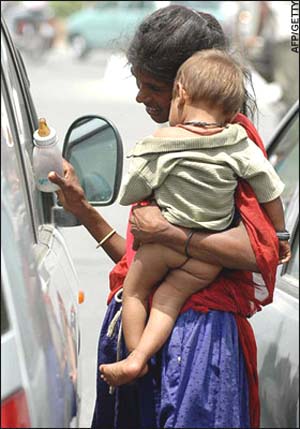Feb 09, 2026
Feb 09, 2026
 A saddening scene of our nation is that of beggars begging, mostly for money. They are seen near places where a large number of people appear: temples, train stations and their platforms, bus stations, bazaars, sightseeing venues, major streets, sidewalks.
A saddening scene of our nation is that of beggars begging, mostly for money. They are seen near places where a large number of people appear: temples, train stations and their platforms, bus stations, bazaars, sightseeing venues, major streets, sidewalks.
Some are begging with their children who are either on their waist, in their lap, on their shoulder, or at their hand. Some are old, weak, ill, naked, or handicapped. Accompanied or alone, fit or unfit, paupers persistently beg to escape hunger and thirst—these are our most ignored, least helped, and least valued people.
How do they beg?
Beggars beg in a variety of postures: sitting, standing, and lying down. Some sing or utter a few words while pleading for alms, but almost all extend their palm or bowl to catch a donation. Some surface near the car that is waiting in traffic and gesture its occupants for money. Some crave abroad trains. Young ones follow walkers until they get money or get tired of chasing them. Women beg with toddlers or elderly or both to pierce our heart and melt our soft side so we give them either money or food. And the bad ones pick people’s pockets for money.
How to help them?
Throw the beggars in jail, people argue; that would be a deplorably cruel thing to do. By being poor, they are punished enough; by jailing them, they would be further sentenced. The Delhi government is meditating on the idea of incarcerating panhandlers in 2010 during the Commonwealth Games to keep them out of foreigners’ sight. This is like hiding a handicapped member of the family until the guests are gone! Panhandlers deserve no less respect, love, care, and help than anyone else.
Some say let city, district, state, or the central government help the beggars. How could a government help them? It involves a vast number of individuals—scattered all around the country—who have no home, no permanent address, no health history, and no personal data such as date and place of birth, age, names of kin etc. It would be demanding for any government to feed, shelter, clothe, and educate them—not to mention the challenging task of monitoring their progress. Furthermore, our government is not known to do an adequate job.
While the central government cannot assist them directly, it could help beggars indirectly. It could create an economic environment in which the currency remains stable, prices and taxes remain low, industrial production humming, productivity rising, and national income skyrocketing. This in turn would make the nation prosperous and would propel most of them from streets to the floors of factories, shops, and offices where they would work and earn. And seeing beggars earning their bread would elate everyone.
Having amassed large sums of money for their places of worships, many think preachers of religions should help the beggars. They should put the money where the soul is! Unfortunately, their help, like the NGOs’, isn’t soulful.
The cry for aid far exceeds the aid rendered. There aren’t enough hands to dry the many teary eyes. A government, religion, jail, and NGO are of limited use in uplifting our beggars; so, it is best if ordinary folks help them. It involves an individual bringing a beggar or two under his or her umbrella and extending a helping hand. A care given on a one-to-one basis is more effective than on any other bases.
04-Oct-2009
More by : Vasant G. Gandhi